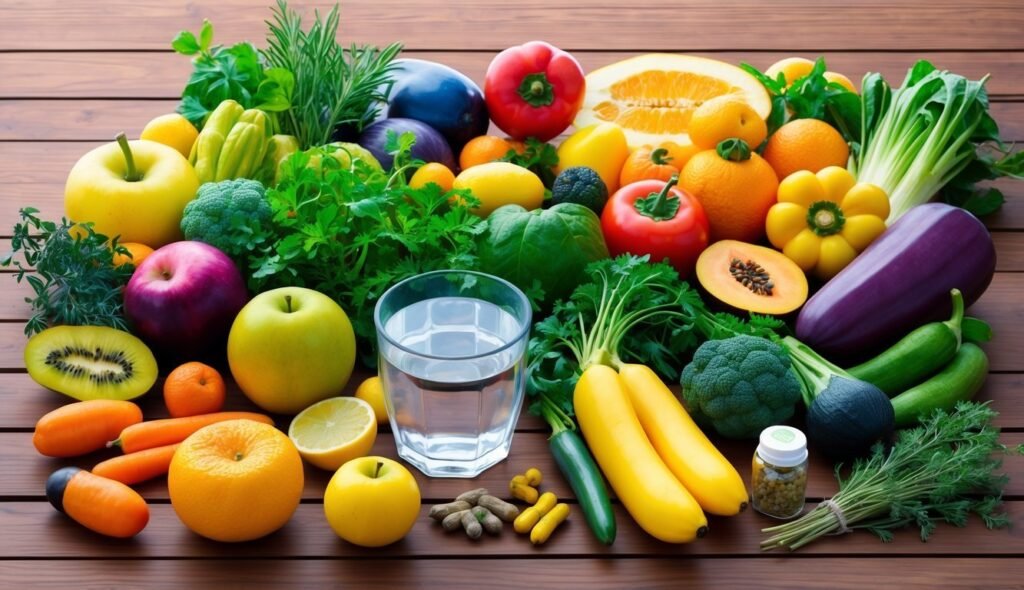The liver plays a crucial role in overall health.
It works tirelessly to filter toxins and process nutrients.
Supporting healthy liver function can lead to better energy levels, improved digestion, and even a clearer mind.
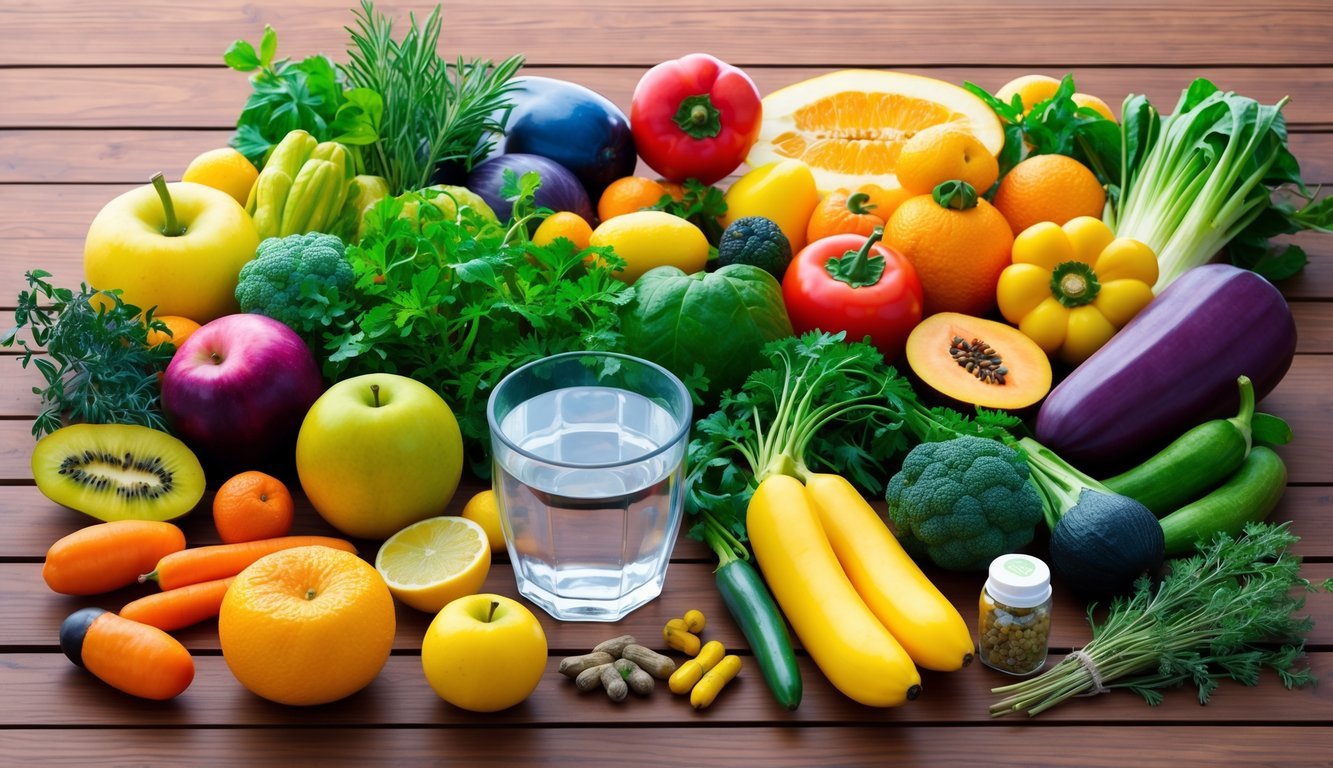
In this article, I’ll explore effective ways to care for this vital organ.
From dietary choices to lifestyle adjustments, I want to share practical tips that can make a real difference in how your liver functions and, ultimately, how you feel every day.
1) Milk Thistle Supplement
Many people have heard about milk thistle when it comes to liver health.
This herbal supplement has been used for centuries and is known for its active ingredient, silymarin.
It’s a group of flavonoids that can have some pretty solid benefits for the liver.
From what I understand, milk thistle can help in rebuilding liver cells and protecting them from damage.
It acts as a detoxifier, aiding in the removal of toxins from the body.
This makes it a go-to option for those looking to support healthy liver function.
Various milk thistle supplements are available on the market, often standardized to contain a specific percentage of silymarin.
Some popular options include capsules with concentrated extracts.
They can be an easy addition to your routine.
Whenever you consider adding a new supplement, make sure to look for high-quality, non-GMO options.
It’s always good to know what you’re putting in your body.
If you’re unsure, you might check with a healthcare provider before starting with milk thistle.
Dandelion Root Tea
I’ve recently discovered the benefits of dandelion root tea for liver health.
This herbal tea has a reputation as a natural detoxifier.
It’s known for supporting liver function by promoting bile flow.
I’ve learned that dandelion root contains antioxidants that can help protect liver cells.
This is particularly interesting because these compounds might support the liver’s overall function.
Drinking dandelion tea regularly can also promote digestive health.
It has a gentle diuretic effect, which may help you maintain proper fluid balance.
Making dandelion tea is simple.
You can steep roasted dandelion root with cinnamon and cloves for extra flavor.
The process allows you to enjoy a warm, comforting drink while doing something beneficial for your health.
Incorporating this tea into your routine feels like an easy step towards better liver support.
It’s a soothing option you can often enjoy in the mornings or as a relaxing evening ritual.
3) Eat Cruciferous Vegetables
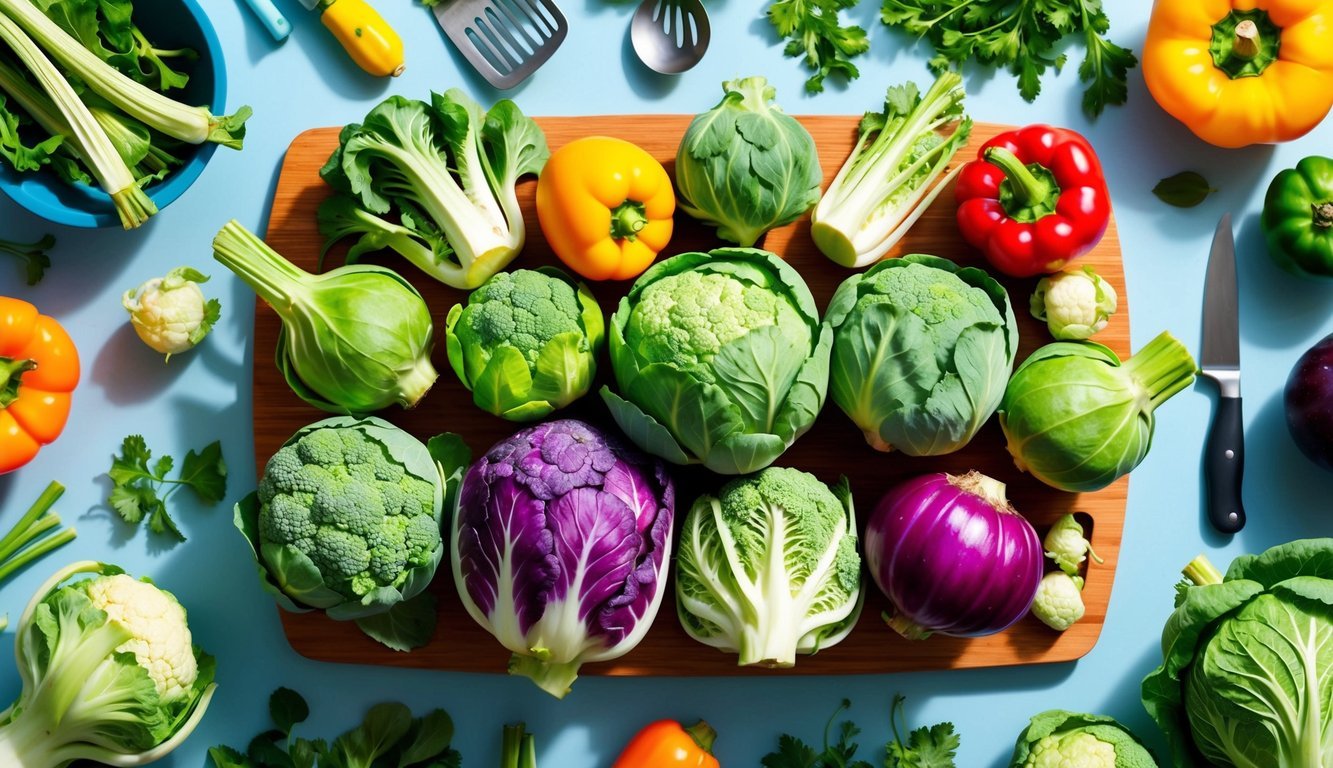
I find that adding cruciferous vegetables to my meals is a simple way to support liver health.
These veggies, like broccoli, cauliflower, and Brussels sprouts, contain compounds called glucosinolates.
They help activate liver detoxifying enzymes.
When you eat these vegetables, you know you’re boosting your antioxidant levels, particularly glutathione.
Glutathione plays a crucial role in protecting your liver from damage.
Incorporating cruciferous vegetables into your diet can be easy.
You can steam them, roast them, or toss them in stir-fries.
Not only are they nutritious, but they can also elevate the flavor of your dishes.
You can also blend them into smoothies or salads for extra crunch and health benefits.
Making these small changes keeps your liver functioning at its best.
Plus, they’re just plain delicious!
4) Drink Green Tea
I often hear about the benefits of green tea for liver health, and it’s definitely something I’ve incorporated into my routine.
Research indicates that green tea can support liver function by reducing inflammation and promoting healthy gut bacteria.
I aim for about four cups per day to really maximize the benefits.
It’s interesting to note that studies have shown a lower risk of liver-related issues among regular green tea drinkers.
Sometimes, I mix it up with some lemon for added flavor and benefits.
It’s a simple habit that can contribute positively to my overall health.
Plus, green tea is packed with antioxidants, which is always a bonus!
5) Cut Down on Alcohol
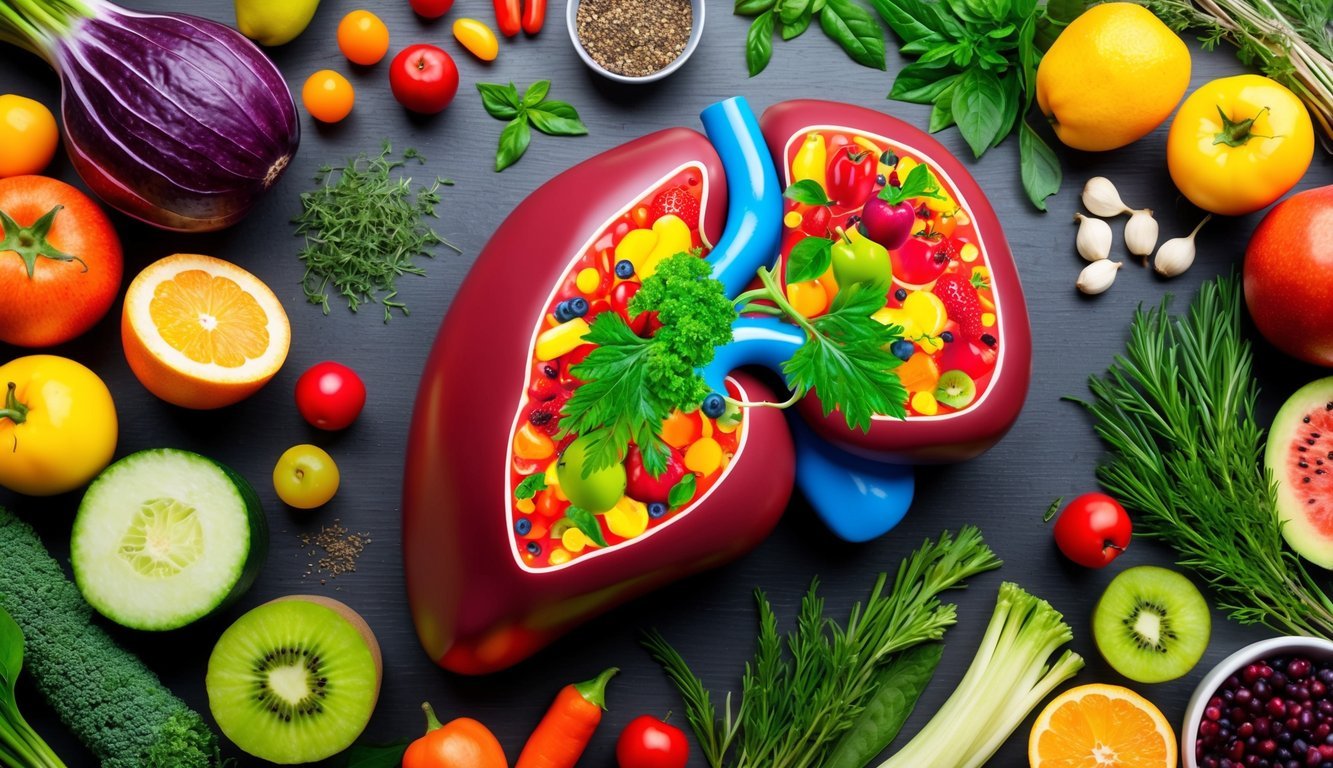
I’ve learned that cutting down on alcohol can significantly benefit liver health.
Even if it feels tough at first, reducing intake is a crucial step.
When you drink less, you give your liver a chance to recover.
If you had been consuming alcohol regularly, you might notice improvements in your overall well-being with reduced consumption.
Alcohol can cause liver inflammation and damage.
By minimizing your intake, you help your liver function better and lower the risk of serious conditions like fatty liver disease.
From my experience, it’s essential to recognize that moderation is key.
You can still enjoy social situations and relax without overindulging.
Opting for alcohol-free days also helps you stay mindful of your habits.
This approach has made a real difference in how I feel day-to-day.
6) Exercise Regularly
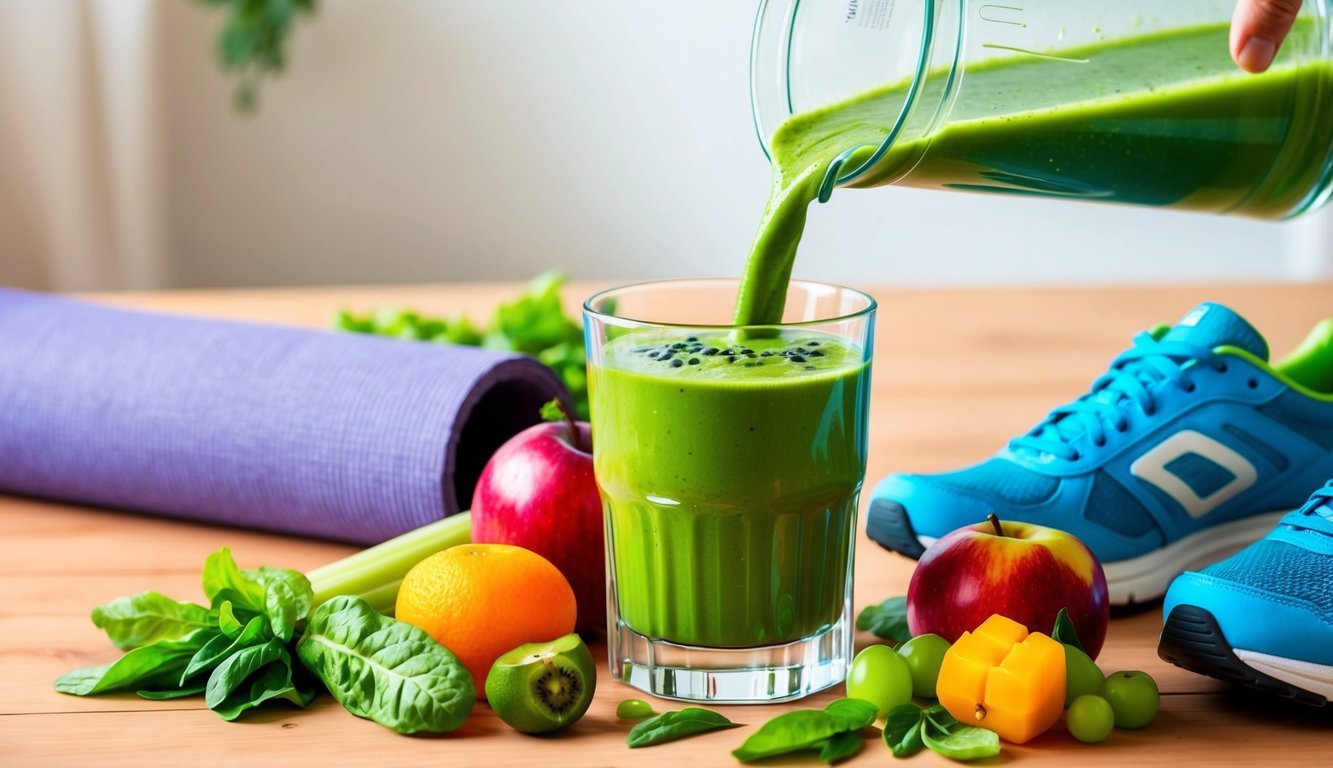
I’ve found that regular exercise is crucial for maintaining liver health.
Just like any other organ, my liver benefits from physical activity.
It can boost circulation and help eliminate toxins more effectively.
Doctors recommend at least 150 minutes of moderate aerobic exercise each week.
I like to incorporate a mix of activities that I enjoy, whether it’s walking, jogging, or dancing.
This makes it easier to stick with a routine.
Strength training is also essential, so I try to include it two days a week.
Even simple exercises like planks can strengthen my core and support my liver indirectly.
Staying active not only helps my liver, but it also improves my overall well-being.
When I exercise, I notice better energy levels and an enhanced mood.
It’s a win-win for my body!
7) Get Enough Sleep

Getting enough sleep is essential for liver health.
When you rest, your liver gets the chance to recover and perform its many functions more effectively.
Quality sleep helps regulate liver enzymes.
I’ve noticed that poor sleep can lead to feeling sluggish, which might affect how my liver functions.
Most adults need between 7 to 9 hours of sleep each night.
I try to maintain a consistent sleep schedule, as it supports my liver’s natural rhythms.
Creating a relaxing bedroom environment makes a big difference.
I keep my room cool, dark, and quiet, which helps me fall asleep faster and stay asleep longer.
By prioritizing sleep, I’m not just benefiting my liver but my overall well-being too.
Consistent, quality rest is a key player in maintaining good health.
8) Turmeric Supplements
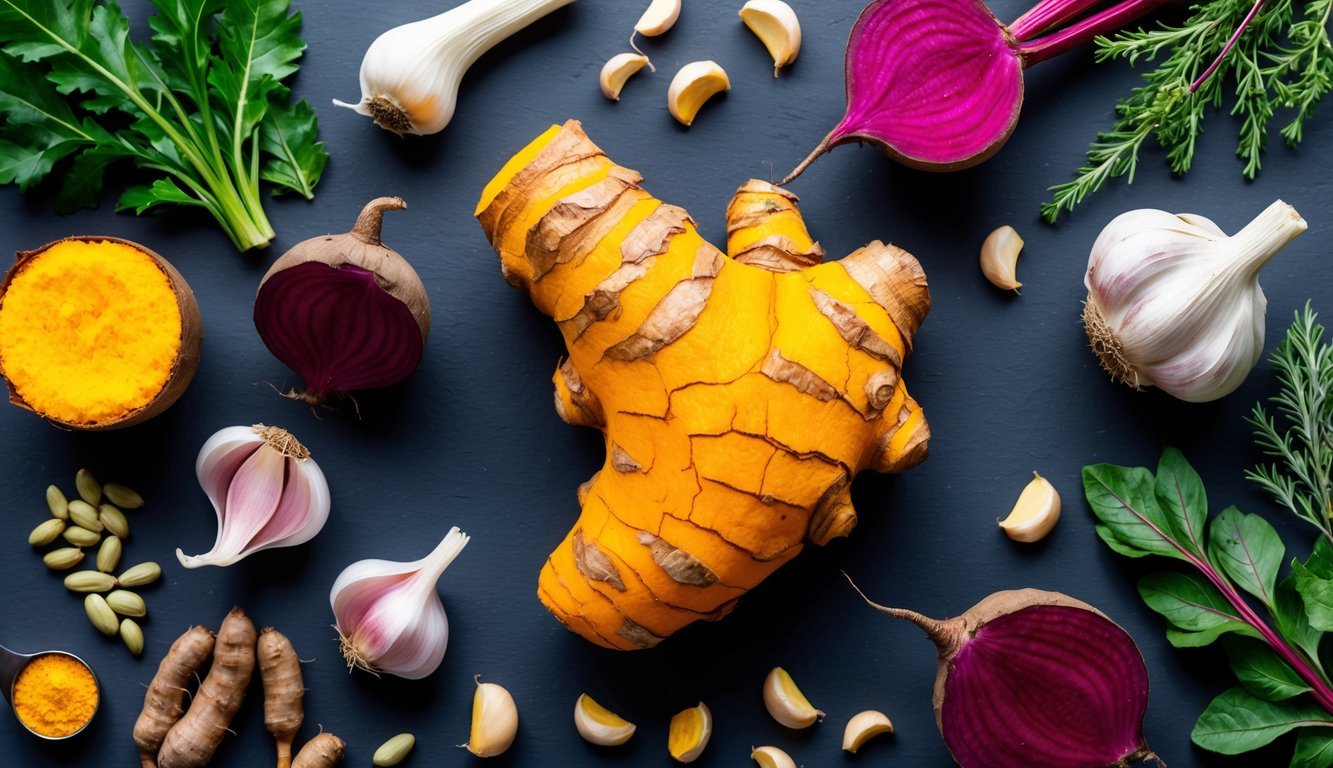
I’ve heard a lot about turmeric and its potential benefits for liver health.
The active compound, curcumin, is known for its anti-inflammatory and antioxidant properties.
I find it intriguing that several studies suggest it may help with conditions like nonalcoholic fatty liver disease.
When considering turmeric supplements, I typically see recommendations for doses around 500 mg taken one to three times daily.
While the preclinical research looks promising, I also know there’s a lack of large human studies, which makes me a bit cautious.
It’s important to look out for any adverse effects.
I came across research indicating some cases of turmeric-associated liver injury, which is concerning.
Though they are rare, it’s something to keep in mind.
If you’re thinking of adding turmeric to your routine, make sure to choose high-quality supplements and consult with a healthcare professional.
With its potential benefits, turmeric seems like a worthwhile option to explore for supporting liver health.
Just make sure to be informed and cautious as you consider incorporating it.
9) Stay Hydrated
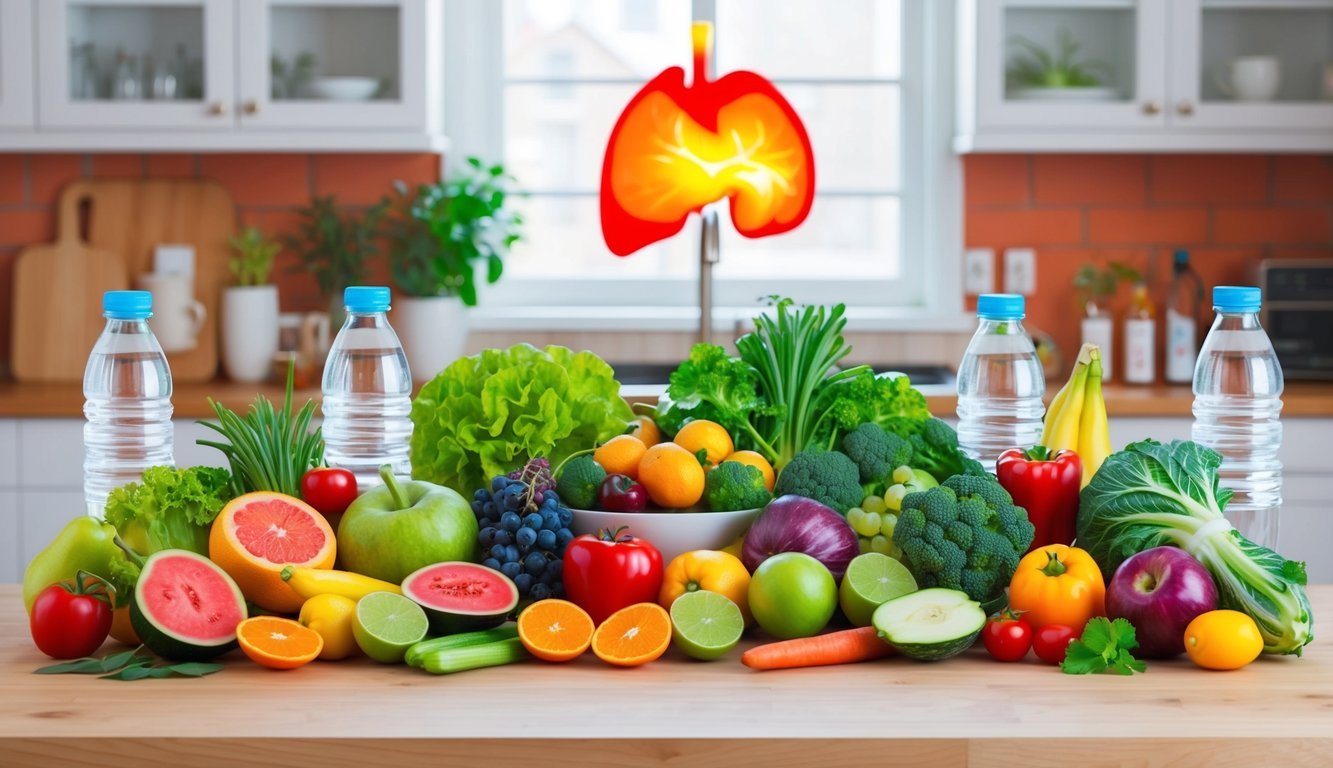
Staying hydrated is crucial for liver function.
Water plays a key role in digestion, detoxification, and nutrient absorption.
I find that drinking enough water helps my liver filter out toxins more effectively.
I aim for about eight glasses of water a day, but this can vary based on my activity level and climate.
Keeping a water bottle handy reminds me to sip throughout the day.
Dehydration can stress my liver, making it work harder.
By ensuring I’m well-hydrated, I support my liver’s natural processes.
I also like to include hydrating foods in my diet, like cucumbers and watermelon.
This way, I boost my water intake while enjoying some tasty snacks.
If I’m feeling fatigued or sluggish, I often check my hydration levels.
Sometimes, all it takes is a glass of water to feel more energized.
Keeping my liver happy is about simple habits, and staying hydrated is one of the easiest to stick to.
10) Practice Mindful Eating

I find that practicing mindful eating has a huge impact on my liver health.
It’s about being present during meals and really focusing on what I’m consuming.
When I eat slowly, I notice my body’s signals better, which helps with digestion.
This can prevent overeating and reduce the burden on my liver.
Choosing whole foods, like fruits and vegetables, feels more rewarding.
I can savor the flavors and appreciate nutrients that support liver function.
I also try to eliminate distractions while I eat.
No phones or TV for me.
This way, I enjoy my food more and feel satisfied without needing large portions.
Hydration is another part of mindful eating.
I pay attention to my water intake, which keeps my liver hydrated and functioning well.
By making eating a more conscious act, I feel empowered to choose foods that are beneficial for my health.
It’s a simple practice, but it has made a noticeable difference in how I feel overall.
Understanding Liver Functions
The liver is an essential organ with multiple roles in the body, and I find it fascinating how it aids in digestion and detoxification.
These functions are key to maintaining my overall health and well-being.
The Role of the Liver in Digestion
My liver produces bile, which is crucial for breaking down fats in the foods I eat.
Bile is stored in the gallbladder and released into the small intestine as needed.
This process not only helps in fat digestion but also aids in the absorption of fat-soluble vitamins like A, D, E, and K.
Moreover, my liver processes nutrients absorbed from the digestive tract.
It converts carbohydrates into glucose for energy and stores it as glycogen.
When I need energy, the liver releases glucose back into my bloodstream, balancing my blood sugar levels.
This intricate system ensures that my body has a steady supply of energy throughout the day.
Liver Detoxification Process
Detoxification is one of the liver’s most important functions.
The liver helps filter out toxins from my blood, making it vital for my health.
It breaks down harmful substances, such as alcohol and drugs, transforming them into less harmful compounds that are eventually excreted.
Additionally, the liver works alongside the kidneys to remove waste and maintain the body’s chemical balance. Detoxing the liver and kidneys can support their natural functions and promote overall well-being.
Eating a healthy diet and staying hydrated are essential for keeping these organs in optimal condition.
The liver utilizes enzymes for this process, often categorizing substances into different groups for further breakdown.
This not only protects me from potential toxins but also helps maintain hormonal balance by metabolizing hormones.
It’s reassuring to know that my liver is working hard every day to keep my body clean and functional.
Dietary Practices for Liver Health
I’ve found that what I eat plays a significant role in supporting liver function.
By focusing on antioxidant-rich foods and maintaining proper hydration, I can help my liver detoxify more effectively and keep it functioning well.
Here’s what I’ve learned about each area.
Incorporating Antioxidant-Rich Foods
Antioxidants are essential for liver health because they help combat oxidative stress.
I like to include a variety of colorful fruits and vegetables in my diet.
Dark leafy greens, berries, and cruciferous vegetables like broccoli and cauliflower are great options.
Here’s a quick list of some fantastic antioxidant-rich foods:
- Spinach
- Blueberries
- Beets
- Avocados
- Nuts and seeds
Additionally, I find that whole grains, such as brown rice and quinoa, provide vital nutrients and fiber, which support digestion and liver function.
Including these foods regularly helps me maintain a healthy liver by providing the nutrients it needs to thrive.
Importance of Hydration
Staying properly hydrated is crucial for my liver to function optimally.
Water helps my body flush out toxins, which reduces the burden on my liver.
I aim to drink at least eight glasses of water a day.
I also enjoy herbal teas for variety.
Some hydrating options include:
- Herbal teas (like dandelion or green tea)
- Infused waters (with fruits and herbs)
- Fresh fruit juices (in moderation)
I try to limit sugary and alcoholic beverages because they can hinder liver function.
Keeping hydration in check not only benefits my liver but also enhances my overall well-being.

